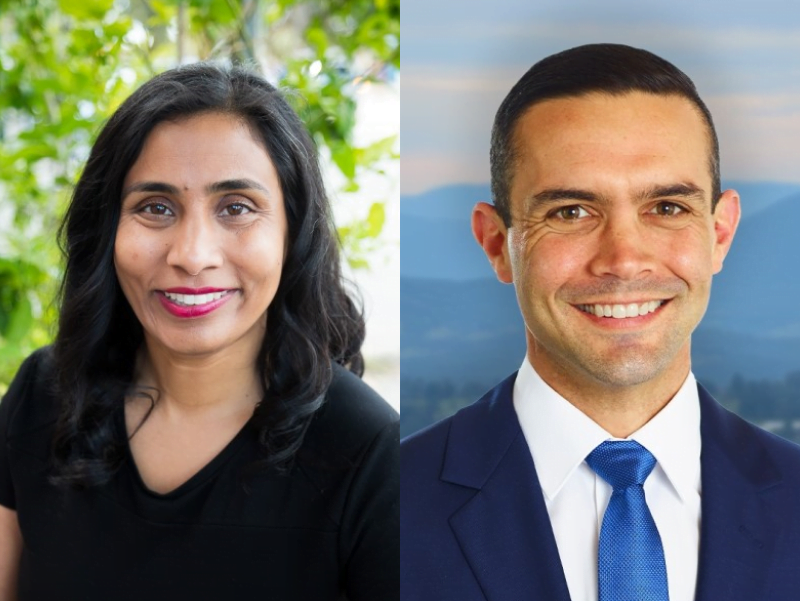Labor’s Zaneta Mascarenhas from the Western Australian seat of Swan and Victorian Liberal Aaron Violi representing Casey have delivered maiden speeches with calls for action across a swathe of innovation issues.
Ms Mascarenhas’s priorities include the decarbonisation of the mining sector, investment in renewables technology, and boosting the country’s advanced manufacturing capability, while Mr Violi’s priorities are regional communications, digitalisation, market competition, cybersecurity capability, and supporting small business.

Representing the seat of Swan in Western Australia, Zaneta Mascarenhas enters parliament after a career as an engineer in the mining sector and 12 years at climate risk and energy transition consultancy group Energetics. “Australia needs to increase diversification, commercialisation, and sophistication of our industry capability. In WA we need to build beyond the resources boom and make our economy more resilient,” Ms Mascarenhas said.
“We can do this by increasing our advanced manufacturing capability. We are a smart country. We have a history of innovation and ingenuity, particularly against the backdrop of harsh remote conditions.
“We saw disruptions to supply chains with COVID and natural disasters and the war. We need to be able to make things in Australia again. In the west we have the potential to become a battery powerhouse.”
Ms Mascarenhas noted that Australia is on track to develop the capability to undertake five of the six steps in the battery value chain, except for the manufacturing of battery cells.
“This is the value-add step. We can build advanced manufacturing capability. Cathodes and anodes can be built in the west, and once we do this we can look at the full life-cycle, and recycle components. We can invest in building this capability through our National Reconstruction Fund. When WA is strong, Australia is strong,” Ms Mascarenhas said.
However, she also warned against the harmful potential of a “disruptive exit out of carbon intensive industries”. Without an orderly transition for regional and metropolitan Australia, Ms Mascarenhas said it won’t just be assets that are stranded but people too.
She praised companies such as Wesfarmers, BHP, Rio Tinto, and Northern Star that had made commitments to net zero emissions, as well as Fortescue for its investments in Hydrogen energy. However, she noted that progress is not uniform across the sector or the economy.
Ms Mascarenhas also stressed the importance of considering scope three emissions. These are emissions produced by assets that are not owned or controlled by the company, such as by power stations.
The new member for Casey in Victoria is Aaron Violi, who replaced former speaker of the house Tony Smith who left at the end of the last parliament. To run for parliament, Mr Violi left his role as head of partnerships for the Asia Pacific region for social food ordering app Ritual.co.
“As we undergo a digital revolution, new technologies such as satellite communications open up the possibility that every Australian, regardless of location, can access phone and internet. We must invest in technology to provide reliable access, for the safety of our citizens. A working phone line can be the difference between life and death,” Mr Violi said.
He also emphasised the potential productivity gains to regional and rural communities as the “digital economy continues to flourish”.
“Having worked for the last three years in the digital economy, I understand the exciting opportunities that can be unlocked as we continue to embrace new technology. The digital economy creates new industries and jobs in its own right. But the true benefit of our transformation is the productivity gains that flow for all industries in the economy,” Mr Violi said.
“It will allow tradies to more efficiently quote and invoice work. It will allow a farmer to monitor their crops with drones. These technologies not only unlock productivity growth but enable workers and small-business owners to chase their dream and, importantly, spend more time with their families.”
In particular, Mr Violi wants to provide a voice for small businesses and the 4.7 million people employed by small business, and backed the need to reduce barriers to entry.
“We must acknowledge and recognise that big business will naturally support regulation and red tape which stifles small business, to the detriment of competition. As a Liberal I instinctively support free markets and the benefits they bring to the economy and the nation,” Mr Violi said.
“However, we must acknowledge the risk of dominant players in a market, which is detrimental to all Australians. For Australia to continue to prosper as a nation, we need to ensure our legislation supports the growth of small businesses and the digital economy.”
Do you know more? Contact James Riley via Email.

